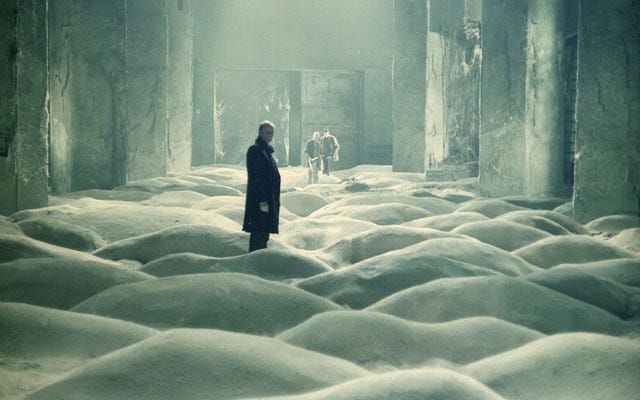nagoyasuzukiamerica.com – “Stalker,” directed by the legendary Russian filmmaker Andrei Tarkovsky, is a 1979 science fiction film that continues to captivate audiences with its profound exploration of human nature, faith, and the quest for meaning. Adapted loosely from the novel “Roadside Picnic” by Arkady and Boris Strugatsky, “Stalker” stands as a pillar of philosophical cinema, challenging viewers with its enigmatic narrative and striking visual style.
The Story and Its Setting
The film is set in a dystopian world where a mysterious and restricted area known as “The Zone” exists. Within The Zone lies a room that allegedly grants the deepest desires of those who enter it. The story follows three central characters: the Stalker, a guide who leads people into The Zone; the Writer, who seeks inspiration; and the Professor, who aims for scientific discovery. As they journey through The Zone, their motivations and fears are laid bare, revealing the complexities of their inner worlds.
Themes and Symbolism
“Stalker” is rich in themes, with its exploration of faith, existentialism, and the human condition at its core. The Zone itself is a powerful symbol, representing the unknown and the subconscious. It challenges the characters to confront their true selves and their deepest fears. The film questions the nature of desire and fulfillment, as the room’s promise of granting wishes becomes a metaphor for the elusive nature of happiness and contentment.
Visual and Aesthetic Mastery
Tarkovsky’s signature style is evident throughout “Stalker,” with long takes, meticulous framing, and a deliberate pacing that immerses the audience in the film’s atmosphere. The cinematography, by Aleksandr Knyazhinsky, captures the stark beauty and eerie tranquility of The Zone, using natural landscapes to create a hauntingly beautiful backdrop for the narrative. The film’s use of color and texture further enhances its dreamlike quality, drawing viewers into a world that feels both real and surreal.
Cultural and Philosophical Impact
Upon its release, “Stalker” was met with critical acclaim, praised for its intellectual depth and artistic vision. Over the years, it has become a cult classic, influencing filmmakers and thinkers alike. Its philosophical inquiries resonate across cultures and generations, prompting discussions about the nature of reality, the power of belief, and the search for meaning in an often incomprehensible world.
Conclusion
“Stalker” is more than just a film; it is a profound meditation on life, human consciousness, and the eternal quest for understanding. Tarkovsky’s masterpiece invites viewers to embark on a journey not only through The Zone but also through the intricate labyrinth of the human soul. Its lasting legacy is a testament to the power of cinema to provoke thought and inspire reflection, making “Stalker” a timeless work of art that continues to challenge and enchant audiences around the world.
